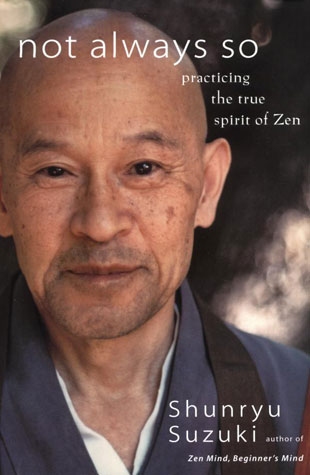Shunryu Suzuki (1904 - 1971) established the Zen Center in San Francisco with a training center at Tassajara. A collection of his lectures, Zen Mind, Beginner's Mind, was published in 1971 and continues to be an essential resource for Buddhists. This companion volume contains lectures given by Suzuki during the last three years of his life. Edward Epse Brown (Tomato Blessings and Radish Teachings) has edited this soul-satisfying collection of teachings about the rigors and rewards of spiritual practice as a discipline. Suzuki believed that zazen (sitting meditation) was the key to inner peace.
Zen master Dogen once said: "Practice and enlightenment are one." Suzuki agrees. One of the gifts that comes naturally from practice is the art of being present: "When we do not expect anything, we can be ourselves. That is our way, to live fully in each moment of time." Another gift that comes from sitting regularly is not trying to achieve anything: "So the important point is to practice without any idea of hasty gain, without any idea of fame or profit. We do not practice zazen for the sake of others or for the sake of ourselves."
Suzuki tells his students to stay with the practice even though it is not good enough. We can only learn through our failures so everything is grist for the mill. Good or bad, practice is still practice, and our lives are enriched. The Zen master also reveals that anything can become a pathway to enlightenment when we are one with our actions — cooking, gardening, even going to the bathroom.
Suzuki is convinced that meditation practice deepens our understanding and appreciation of silence, wonder, kindness, and respect or reverence. We were especially touched by the following teaching story. "The other day Tatsugami Roshi said, 'A tiger catches a mouse with his whole strength.' A tiger does not ignore or slight any small animal. The way he catches a mouse and the way he catches and devours a cow is the same. But usually, although you have many problems, you think they are minor, so you don't think it is necessary to exert yourself." Small matters are just as important as large ones.
The title of this book refers to one of Suzuki's favorite phrases: "It may be so, but it is not always so." We should never grasp at our preconceived ideas of the way things are. Everything changes, and rigid thinking just won't cut it in a world of constant change.
A final bit of wisdom is given to those of us who are always in a rush: "Instead of galloping about, we walk slowly like a cow or an elephant. If you can walk slowly, without any idea of gain, then you are already a good Zen student."
